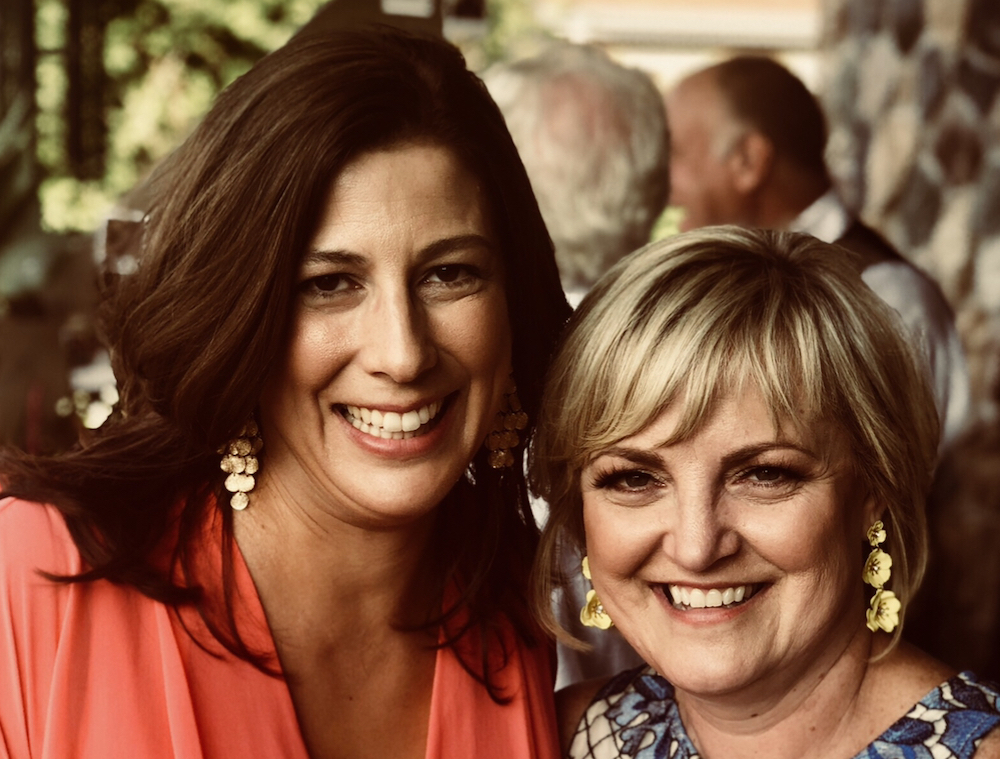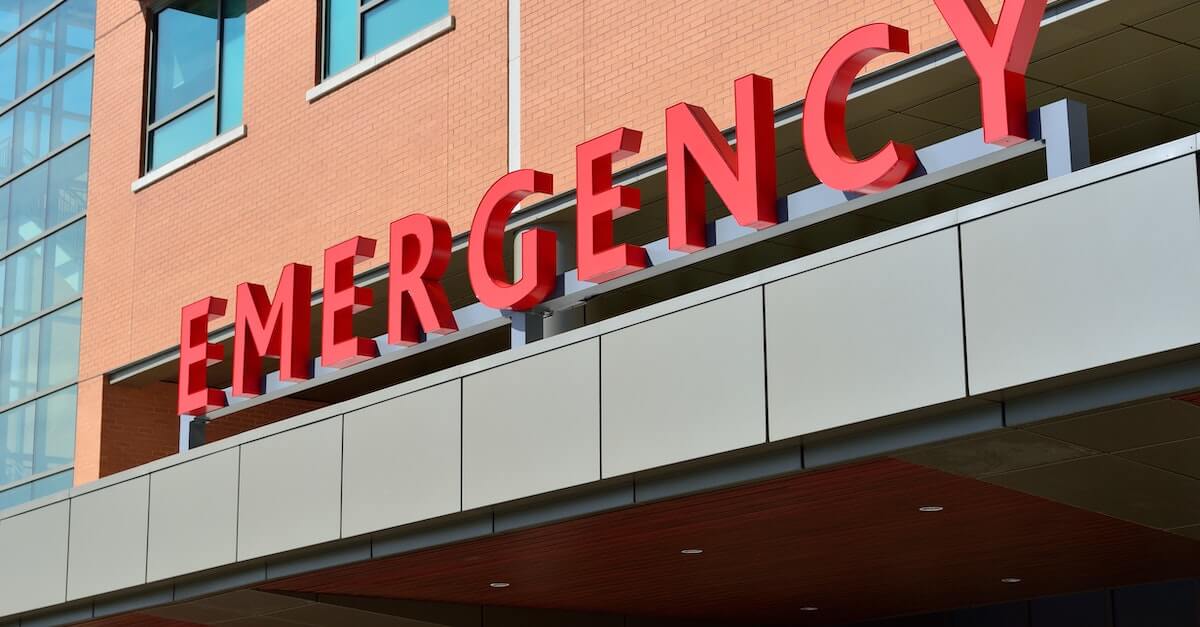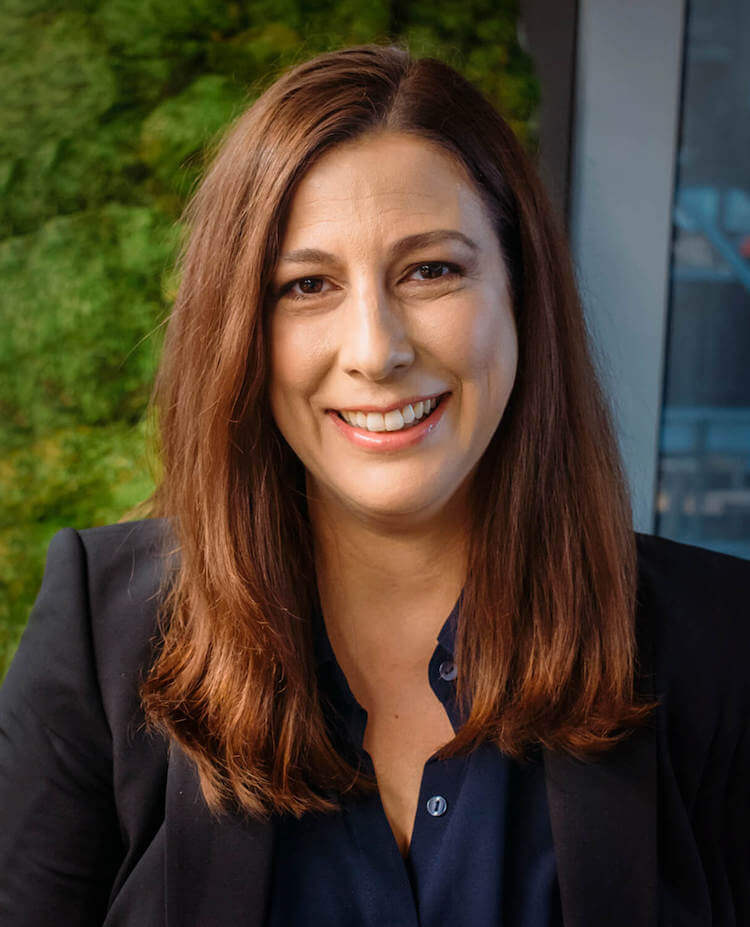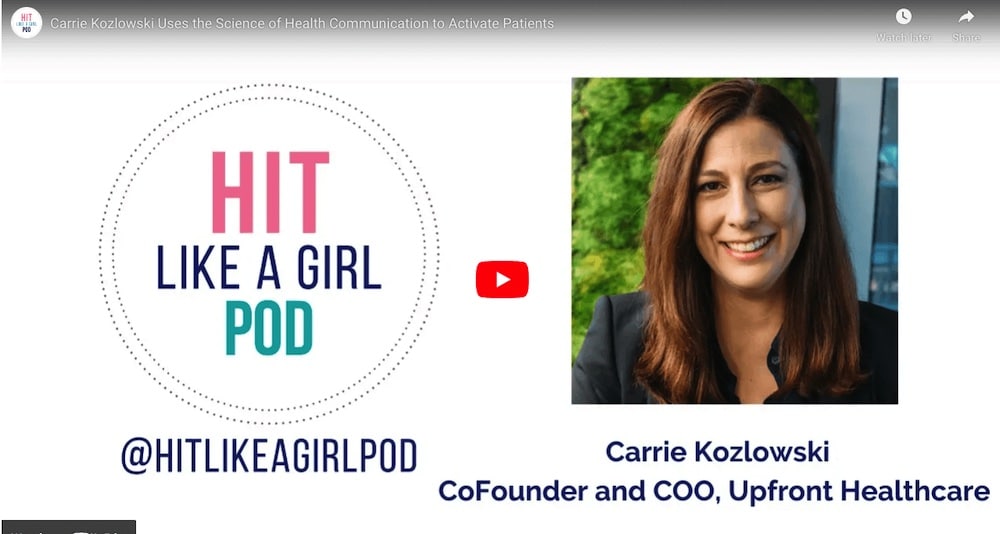Upfront COO and Co-Founder Carrie Kozlowski (left) and VP of Services Barbara Bartosch (right)
Part 1: Why it’s important to build trust with every patient
Published posthumously on behalf of Barbara Bartosch who passed away from ovarian cancer on May 31, 2020. Intended to be one part of a three part series that was unable to be completed.
How did I get here? This is a story about healthcare delivery in our country. A story that up until now, I egotistically felt I knew all about, only to find out how little I really know. I chose to write this first piece while we are experiencing one of the worst health crises in perhaps our lifetime, the COVID-19 Pandemic.
May 20, 2019 the day I began to learn how little I really knew about the patient experience. To underscore this statement, it helps to know the me prior to May 20th. I have 30-years of healthcare industry experience, and have worked in every arena, every facet, every workgroup available. I pride myself on knowing the full cycle of care delivery. I have worked with front line caregivers all the way to board of directors in almost 65 plus health systems across the country.
I believed those years of experience provided me with a deep understanding of our health care delivery systems and certainly put me in a position to work on any number of patient process improvement projects.
“We have your results back. You have a 30cm mass in your abdomen that has crushed your left ureter, and you are presenting as Stage 3 ovarian cancer. We need to perform surgery right away and start treatment.”
I am now the patient: On the verge of my one-year anniversary of my cancer diagnosis. I have undergone an extensive surgical procedure and while performed by an absolutely wonderfully skilled physician, she was not able to get all the cancer. I currently have a 4cm inoperable mass that three different rounds of additional chemo have had no impact. I was also left with a ureter stent that must be replaced every three months.
My diagnosis finds me with membership to a couple of new clubs these days: the weekly fusion club and every three-month stent exchange club. Both have their own protocols; both require a regimen of care that needs to be adhered to and both were compromised because of COVID-19.
I am not naive to think care would not change as health systems figured out how to manage through this pandemic. I have worked on emergency task forces within health systems, and I even helped to put changes in place that would impact patient care. But never did I see it truly through the patient’s eyes as I do today. I never realized how the lack of communication and the compromises being made really impacted patients.
So why in this day and age of healthcare delivery does it feel like we are back to toe tagging those that we will provide care and those we will not? It starts with ancillary services. While health systems like to adhere buzz terms to what they do the word “elective” is now the new four-letter word to vast number of patients. Quickly things I considered protocol requirements in my care were no longer available to me and I was not alone.
On my fusion day there are probably 50 plus patients treated across the day. Each has their own treatment plan. You get to know their stories. But more importantly, I get to know how they struggle navigating the care they need. By the sheer nature of my current work with Upfront, where we are working closely with health systems and their handling of COVID-19, I had a better understanding of what was happening, but it was very clear to me the patients in my fusion center did not. Most did not understand how the necessary tests and procedures, embedded into their care plan had become “elective” and deemed no longer something they could schedule.
Cat Scans are an integral part of determining the success of chemotherapy. It is essential to know the treatment is shrinking the tumor and/or the tumor is not growing or that the cancer has not spread. Patient after patient I heard trying to schedule these tests to be met by “we are no longer scheduling elective cat scans and have no idea when we will be.” At which time the call would be ended abruptly with the patient not knowing what to do. The fusion nurses told the patients to call back and indicate the test was being booked because they are a cancer patient and in turn should provide the rationale for scheduling. Those that called back were met with the same response. It no longer matters what your treatment protocol was, did not matter you needed the results to understand how to continue your care. If you were not caught up with COVID-19 symptoms you were not getting treated.
Your procedure no longer matters. As for me “elective” meant the stent that I need to have replaced every 3 months no longer mattered. I was booked for my exchange only to receive a call that they were cancelling it and would look to push it out 3 weeks, but there was no guarantee it would still happen. This stent exchange is protocol, in order to avoid complications, and especially since the mass I have is wrapped around this ureter it must be replaced and adjusted in a timely fashion.
I saw the same thing happening with other folks at the fusion center. They were getting calls of cancellations, being told there was nothing that could be done to help them. No one was explaining what the patient needed to do, what would happen with any pre op testing, pre op physicals, would they all have to be redone?
Your condition no longer mattered: None of us had COVID-19, but our chronic conditions no longer mattered. Our daily fight with one of the most brutal diseases was to take a back seat, and we were to adjust to that new reality with no idea on what that really meant. How were we to cope? How were our fusion routines potentially impacted? How were we to eventually schedule what we needed? As a patient population, we were told to hunker down, go nowhere, and wait. To a cancer patient the one thing you do not have is time to wait. Cancer does not wait for you to get back on your protocol schedule. Cancer is an opportunistic disease, and it will grab the smallest of opportunity window to flourish.
We are still waiting: Nearing over 8 weeks in shut down mode, life remains anxious and unpredictable. I am lucky enough to have an oncologist that runs his own fusion center and in turn I do not have to seek my weekly treatments from a hospital where extreme measures are in place to keep the compromised away from any COVID-19 activity. I was finally able to book my stent exchange but only because I fell into a very specific category of chemo patient in pain. Which I found out was second to necessary ortho procedures and you were still very much out of luck if you were a dialysis patient. Dialysis patients were not allowed to book anything. As a patient I want to understand who creates these priorities, who designates the toe tag you get? And it was only because of a very savvy scheduler at my Urology doctor’s practice that I was not pushed again.
We should be able to do better: While the health systems send me plenty of COVID-19 communication: how to detect, how to react to symptoms, what the health system is doing about it. I never once received a personal communication about how my cancer care was going to be impacted or what to do as a result, and neither did my physician. We were left making adjustments with no understanding how they fit into our new pandemic health care world. We were left behind, and this is just one chronic disease.
Planning must include continuation of care on all levels. We have a tendency in health care to react to the emergency and we do so in amazing fashion as seen by the extraordinary work the health care professionals are doing in managing through this pandemic. But at what cost to all other healthcare needs.
As VP of Services with Upfront, I am helping our team to make sure daily COVID-19 communication is going out as efficiently as possible. I am proud of the work we are doing and see the impact it is having. We are delivering up-to-date education and information in a timely manner. We are getting test results out to patients such that we can reduce their anxiety and enable the rebooking of necessary appointments and procedures in a matter of clicks.
Unfortunately, as a cancer patient I am not getting that same information. I and a good majority of my fellow compromised cancer fighters were left behind to figure out what impact delays in our care will have on our fight, and we are still working through that now. Health care systems have provided little if any guidance on what to do and what to expect.
While there will be many lessons learned from COVID-19 over the months and years to come, health care systems must do better. Even in the highest of emergencies, health care systems must never leave a patient population behind.



